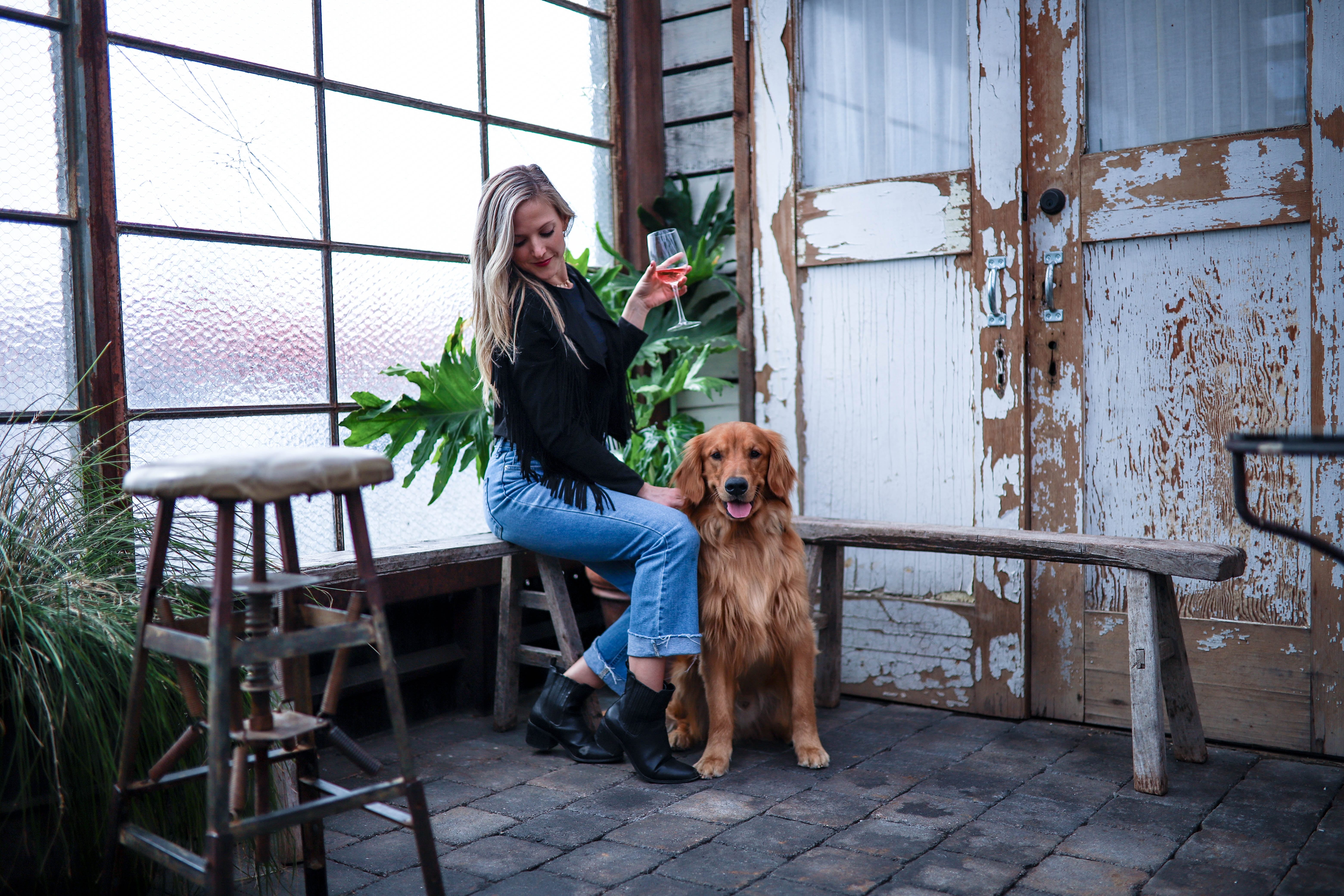
“Let’s do drinks.” It’s a phrase uttered by many, heard from co-workers, friends, and romantic prospects. Drinking culture is alive and well, and if you have a social circle, it can be hard to avoid.
I’ll be honest—I’ve often been the one to invite a friend to my favorite wine bar or some funky brewery that’s featuring a roasted marshmallow on top of campfire-themed stout. I enjoy the environment, the high stools, and the spontaneous conversations with the bartenders. But I’d be lying if I said I wasn’t curious about my drinking habits and how that behavior intersects with my desire to be a thoughtful, mindful human.
I’m not the only one. Club Soda, co-founded by the Numinous’s Ruby Warrington, was created out of “sober curiosity” and currently serves as an event series focused on reframing one’s relationship with alcohol. Dry January is a month dedicated ditching alcohol. For some it’s about weight loss, others declare it’s about saving money—either way, it’s no surprise this declaration follows one of the most indulgent months of the year.
In general, more and more people are looking into what their drinking habits mean. And while we’re huge supporters of the booze-free lifestyle, we also recognize that many of our readers choose to drink. For those of you who have a healthy relationship with alcohol but are simultaneously looking to cultivate a more mindful connection with what’s in your cup—here are three of our suggestions.
Please note: Intentional drinking is not a recovery program. If you have concerns about alcoholism, drinking (mindful or otherwise) is not advised.
First of, all don’t drink when you’re sad.
Let’s end this myth right now: booze does not make you happy. Alcohol, regardless of the type of alcohol, is a depressant and therefore can bring you down when you’re already feeling low. I’ve given into the temptation of a “healing” night in with my pjs, Gilmore Girls, and a bottle of Cab Franc, only to end up crying even more than I was before.
Drinking might seem attractive when you’re sad or anxious—but hold off. Booze dulls your emotions and your ability to rationalize. It clouds your judgement and can kill your tact. For these reasons, it’s likely not best to drink when you’re going through a rough patch with your partner or super stressed with a huge project at work. Instead, use this time for a healthy dose of inner work. Swap the happy hour IPA for a yoga class, a long walk, or cooking dinner with a friend. If it’s the routine you’re missing, sip on sparkling water or a cup of tea. You’ll feel better than you would had you imbibed—and with more clarity to approach any tough decisions.
Buy your booze like you buy your food.
I can be very difficult at a restaurant. I want to know where things are from, how they were made, and if that salmon got a massage before it ended up on my plate. And yet many of us (my past self included) take pride in snagging a three dollar bottle of wine from the grocery store.
Treat your booze like you do your food. Ask questions. Research. Many people enjoy wine or spirit tasting because it allows them to ponder where the came from, how it was made, and what factors contributed to its creation. This might be a good approach to use with every alcoholic beverage you choose to consume.
All it requires is a bit of research. Unfortunately, alcohol brands are not required to put the ingredients on the bottles—and in many cases, there’s more than grapes in that bottle of wine. Big corporations often add additional sulfites, yeasts, sugars, and even some wacky stabilizers like egg whites or fish bladders to their wines. Luckily there’s an entire natural wine movement happening right now that’s totally dedicated to unfiltered and unfined wines. (Note: Natural wine is different than organic and biodynamic, though there is quite a bit of overlap.) Many people actually prefer natural wines as they like the “raw” flavor and the idea of supporting small businesses.
Drink slowly and with intention.
It may seem a bit obvious to say “drink intentionally”—but we mean it. Like, the physical act of drinking. Be as mindful with your drinking as you are with your skincare routine. (I actually have to switch this comparison around since I’m not mindful at all with my skincare routine, but am really freaking mindful with how I drink my Pinot Gris.)
Like intentional breathing, spending, and eating, intentional drinking has actually been a long-time practice of some sects of Buddhism. In his book, The Buddha Walks into a Bar, Lodro Rinzler explains that while Buddhist monks usually cannot have alcohol or other intoxicants, some practices (especially in the Tibetan Vajrayana tradition) emphasize experiencing things that may have otherwise been considered an obstacle to a spiritual path. In some ceremonies, this includes alcohol.
Give yourself some practice with this one. Rather than order the happy hour special or throw back shots, really take a moment to think about what you’re drinking and how you’re feeling. Inhale before drinking. Sip slowly—craft beers, natural and biodynamic wines, and craft cocktails often offer interesting flavors profiles or fun ingredients that allow you to consider the creation of your chosen beverage. If you’re with another person, discuss what you’re tasting.
Approaching the actual act of drinking with slow, intentional movements prevents you from over-imbibing, which can cause both your body and wallet unnecessary stress.
When it comes to alcohol, you need to be honest with yourself and your body. Have a check-in before each drink. Don’t sip when you’re sad. Sip mindfully. Sip well.
—
 Amanda Kohr is the editor at Wanderlust. You can find her exploring new highways, drinking diner coffee, and on Instagram.
Amanda Kohr is the editor at Wanderlust. You can find her exploring new highways, drinking diner coffee, and on Instagram.
